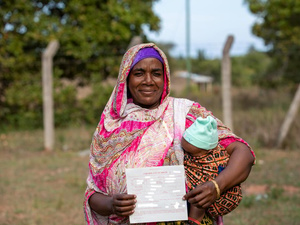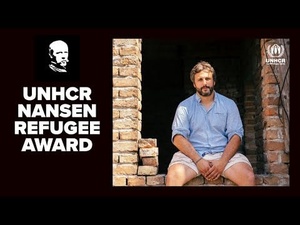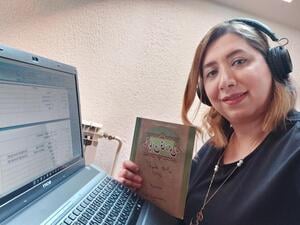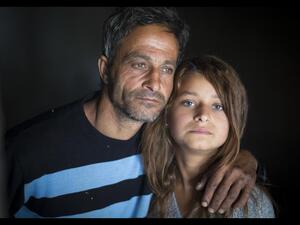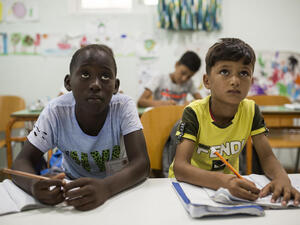Kosovo Crisis Update
Kosovo Crisis Update
The Exodus
1,459 Kosovar refugees were allowed to cross into Albania late Friday evening at the Morini border post. The group, representing the entire population of the village of Vragolija, located just west of Pristina, were ordered out of their homes when security forces surrounded it earlier Friday, refugees told UNHCR. They travelled the 150 km to the border in 114 cars and tractor-pulled trailers.
The refugees told UNHCR staff that they were first instructed to leave on foot and then, after walking around 500 metres, were told to go back to their homes to take their vehicles. Security forces then escorted the column the entire way to the border, refugees said.
The group told UNHCR that most villages on the road to the border post at Morini had been burned. They met no one on the road as they moved south but at Djakovica civilians warned them not to continue, as others had "been taken from the border into the mountains", the villagers said.
Yugoslav border police re-opened the checkpoint to allow the group to pass, and Albanian officials had to register the new arrivals well into the early morning hours, before they could proceed to Kukes town.
Early Saturday morning, another 76 refugees entered Albania through Morini.
In Montenegro, UNHCR counted 650 new arrivals from Kosovo during Friday, all from Istok, bringing the total number of displaced in the province to 61,000. They reached Rozaje on foot and told UNHCR staff that around 6,000 people in the Jablanica area (of Pec municipality) were trying to work their way to Montenegro.
UNHCR-IOM Humanitarian Evacuation Programme
Airlifts of volunteers for evacuation among refugees in Macedonia continued on Friday 9 April. Around 1,000 refugees travelled to Germany (740), to Turkey (149), and to Norway (110). A UNHCR team in Brazda camp is using megaphones to inform refugees of evacuation options, and registers volunteers who come forward, in particular to make sure that families remain intact. An identical effort is planned for other refugee sites.
Another 1,000 refugees are expected to leave on Saturday 10 April for Germany, Poland and Turkey.
On Friday, the High Commissioner and the Director of UNHCR's Regional Bureau for Europe, Mr. Anne-Willem Bijleveld, briefed members of the diplomatic corps in Skopje on the humanitarian evacuation operation.
The High Commissioner explained that UNHCR wished to assist refugees as close as possible to their region of origin, for as long as this could be done. Since the refugees who had been stranded in the no man's land at Blace had been shifted to camps in Macedonia and to Albania, she did not believe that the situation currently warranted the urgent evacuation of refugees to overseas destinations. However, voluntary evacuation to European destinations was continuing, and the High Commissioner expressed deep appreciation for all of the offers which had been made to take in refugees.
Mrs. Ogata stressed that the situation remained very volatile and unpredictable, with the risk of resumed expulsion of ethnic Albanians from Kosovo at any time. UNHCR might therefore need to avail itself of the option of evacuation to more distant locations (including outside of Europe) on very short notice, depending on developments.
Mrs. Ogata's visit
In Skopje, the High Commissioner met Friday with President Gligorov and senior members of the Macedonian government. She spoke with representatives of the refugees in the capital and today will visit refugee sites and Macedonian host families which have taken in refugees.
In her meeting with Ambassadors she stressed the urgent need to support the numerous host families all over the former Yugoslav Republic of Macedonia which have taken in refugees. More than half of all refugees in Macedonia are staying with host families. She also underlined the need to support Macedonian institutions and community structures.
Saturday morning Ogata discussed the situation inside Kosovo with Ambassador William Walker, who headed the OSCE's Kosovo Verification Mission. She also met with NATO General Drewienkewicz.


